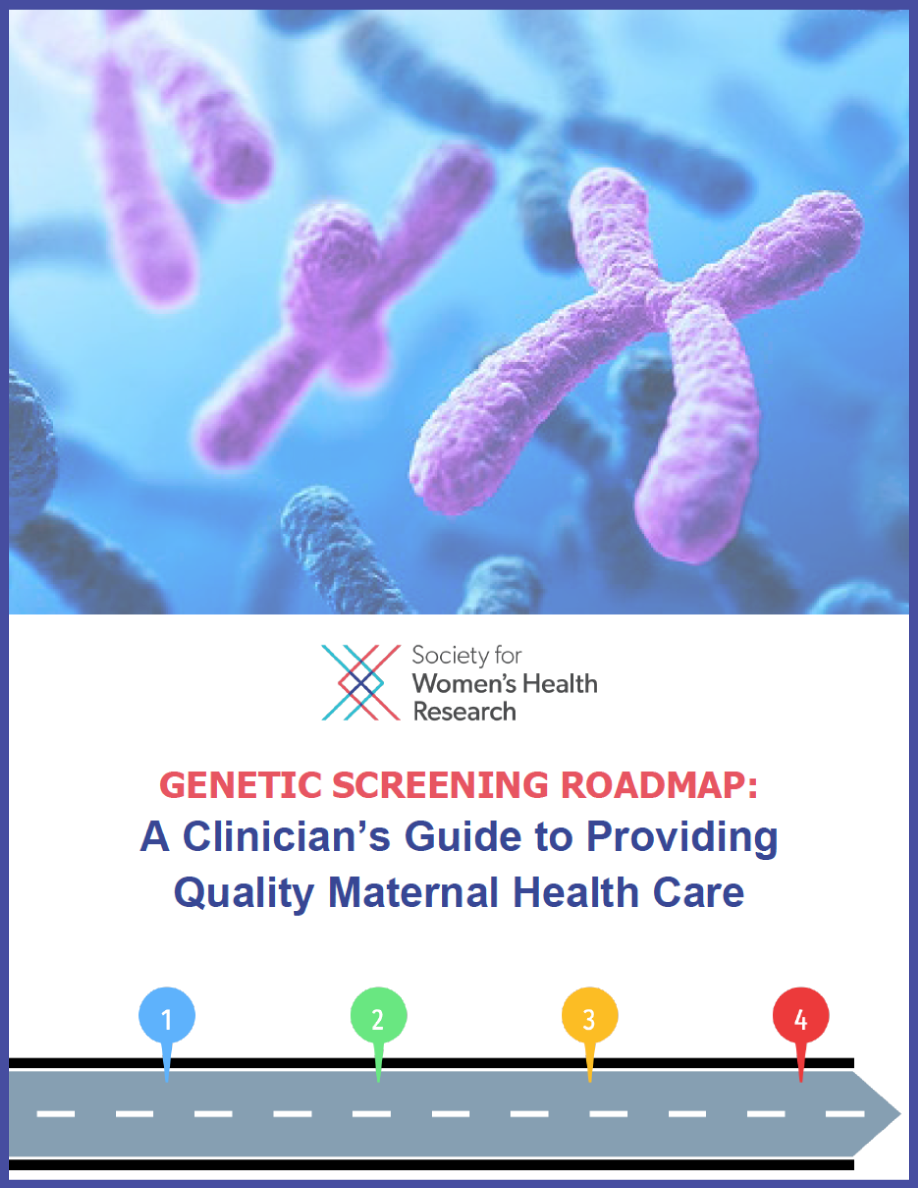Genetic Screening Roadmap: A Clinician’s Guide to Providing Quality Maternal Health Care (Part 1)
Introduction
Genetic screening exemplifies the translation of advances in human genomics research into early interventions that promote individual public health benefits. A variety of tools and methods are available to screen adults, fetuses, and newborns — all with a goal of gaining insight into the potential outcome of certain genetic conditions.
Genetic screening can help women make informed decisions about their reproductive health and pregnancy management, and may improve maternal and fetal outcomes by allowing preparation to care for children who may have a genetic disorder. However, there is limited independent and culturally-inclusive research assessing the public health implications of preconception and prenatal screening, resulting in significant challenges to integrating research and development advances into existing health care and regulatory systems, as well as gaps in patient care and inequities between populations.
This roadmap focuses on two types of screens – Expanded Carrier Screening and Noninvasive Prenatal Screening.
Expanded Carrier Screening (ECS)
Carrier screening allows individuals to assess the chance of having a child with certain inherited genetic conditions prior to conception or during pregnancy. It can determine the carrier status of reproductive partners for some recessive and/or X-linked genetic conditions that can be inherited by their children. Carrier screening traditionally has been offered based on a patient’s ethnicity, as some heritable conditions occur more commonly in specific ethnic groups. However, self-reported ethnicity may not accurately reflect a patient’s unique ancestry. As families and societies grow more diverse, ethnicity-based screening has become more challenging, with 20-40% of Americans unable to accurately report their ethnicity. Additionally, research continues to evolve our understanding of genetic etiologies of conditions compared to when practice guidelines were initially developed. Clinical guidelines today include a combination of population and ethnicity-based recommendations and individualized approaches to determine appropriate screening for each patient.
Expanded carrier screening (ECS) tests for a much wider panel of conditions, without regard to ethnicity. While family medical history and ethnicity are often used to guide targeted screening decisions, ECS can be useful for identifying genetic risks if ethnicity is difficult to determine and family history is unknown or insufficient due to the autosomal recessive or X-linked nature of these conditions. However, formal guidelines as to who should be offered carrier screening (all patients or only those of certain ethnicities), the timing of testing (preconception or during the prenatal period), and how to determine which conditions should be included in targeted and expanded screening panels have not yet reached widespread consensus and implementation.
Noninvasive Prenatal Screening (NIPS)
Noninvasive prenatal screening (NIPS) uses a blood sample taken from the mother to examine cell-free DNA (cfDNA) from the placenta that circulates in the mother’s blood to determine if the pregnancy is at risk for a chromosomal aneuploidy. NIPS is also referred to as noninvasive prenatal testing (NIPT) or cfDNA screening. This technology is commonly used to screen for chromosomal conditions such as Down syndrome; however, it is also capable of detecting a number of aneuploid conditions, fetal sex, and some microdeletions and copy number variants. NIPS panels that include single gene disorders are also becoming more readily available. NIPS provides a screening alternative to traditional maternal serum screens to assess the chance for fetal chromosomal conditions during pregnancy. Although NIPS can tell parents whether the fetus is at an increased risk for certain chromosomal conditions, positive results require amniocentesis or chorionic villus sampling to provide a definitive diagnosis.
The SWHR Genetic Screening Roadmap: A Clinician’s Guide to Providing Quality Maternal Health Care was developed to raise awareness, expand education, and improve implementation of genetic screening among women and their families, health care providers, and policy stakeholders.
Download Roadmap







